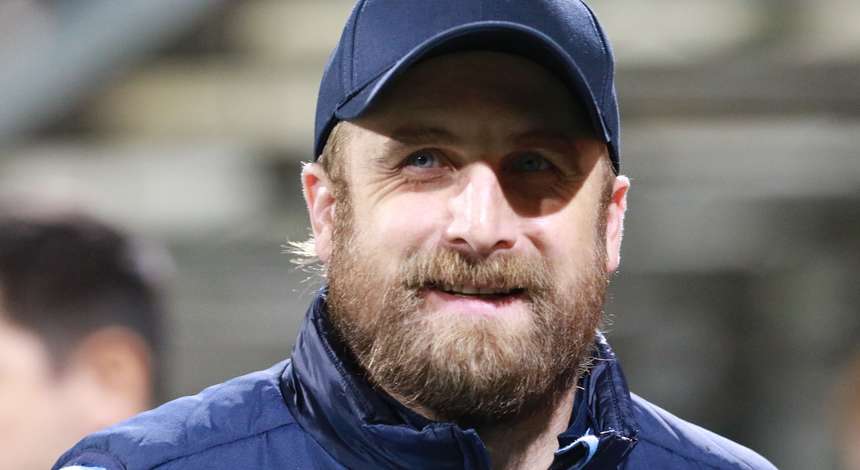
Hello Mr Bierofka, first of all: How are you?
I’m doing well, thank you. Professionally too. I accepted the job as coach of the Austrian traditional club Wacker Innsbruck at the start of the season. We want to build something here to get the club back in the first division as soon as possible and hopefully also return to European competition in the near future.
You were at Bayer 04 for three years during your playing career. What are your memories from that time?
It was a fantastic time. I was signed by the general manager Reiner Calmund and the coach Klaus Toppmöller back then and I was able to play in a great team. It was a privilege for me. The Champions League nights I was able to experience against absolute top European teams – I’ll definitely never forget it. I had a brilliant time at Leverkusen.
After not such a good first season when you finished fifteenth , there were two more successful seasons (third and fifth). What was your start like?
It wasn’t easy in the first year. The team was in the Champions League and DFB Cup finals the year before and just pipped at the post in the league. Then a number of Bayer 04 players were at the 2002 World Cup in the summer – they didn’t really have a break. On top of that, Michael Ballack and Zé Roberto left the club before my first season at Leverkusen. The team obviously lost quality because of that. But it wasn’t a bad year for me as I scored the most goals in the season. Although I wasn’t actually known for scoring goals.
At Leverkusen, you played alongside Lucio, Carsten Ramelow, Dimitar Berbatov, Ulf Kirsten and Bernd Schneider. Were you able to pick anything up from them?
There were real stars of international football there. Just looking at the central defence – Lucio and Juan were World Cup winners. And it was a treat to watch Bernd Schneider in training sessions. Ulf Kirsten was in the autumn of his career but he still trained with so much ambition and determination. As a young player, it was a privilege to be able play alongside them. That influenced me and helped me develop.
You rejoined 1860 Munich in 2007 after the two years at VfB Stuttgart. There you were able to see Lars and Sven Bender start their professional careers. How did you see the Bender twins as players and as people?
The two lads had just come through from the youth set-up and were taking their first steps in the senior squad. Of course, I tried to help them out. We had a very good relationship with each other. At times, as a forward, I used to do extra work on challenges with one them after training – they defended. They are two really grounded people and they’ve both had a great career. I can understand that you get to the point where you have to listen to your body. I wish them all the best for the future after they end their playing careers in the summer.
And you also got to know Julian Baumgartlinger and the former Leverkusen player Kevin Volland at the Lions. How did you see the development of the two players?
As positive as with the Benders. In particular, Julian Baumgartlinger has developed really well. He didn’t always play for us but he has developed into a really good player via Vienna and Mainz and he’s already made his mark on Leverkusen. And Kevin has also made a name for himself in international football. He performed really well in Germany in recent years and is now doing a great job at Monaco. I think it’s a pity he’s played so few games for Germany. To my mind, he deserves more attention and recognition.
After your playing career ended, you became a coach at 1860 Munich and were involved with a number of different teams. In 2017/18 you took the first team from the Regional League back into the professional game in the third division. What does that mean to you?
I was at the club for 14 years as a player and a coach. The club is very close to my heart. After the licence was withdrawn in 2017, getting promoted to the third division was very important for the club in terms of stabilisation. Now they are in really good shape and my fingers are crossed for them. Perhaps they will get back into the second division, which is where I think they belong.
At the moment, you are the head coach at Wacker Innsbruck. How do you feel in Austria?
Very good. The mentality of us Bavarians and Tyroleans is very similar. I really feel at home here.
Do you still follow what’s happening at Bayer 04? What’s your assessment of this season?
I follow all my former teams. I think Leverkusen played great football up to the winter. The game against Bayern was an absolute top match and the team was on equal terms for a lot of the game. Even though the recent results haven’t been positive: I think the players are really on track and they have an outstanding coach in Peter Bosz. If you look at the age structure in the team then you can expect good things in the future.
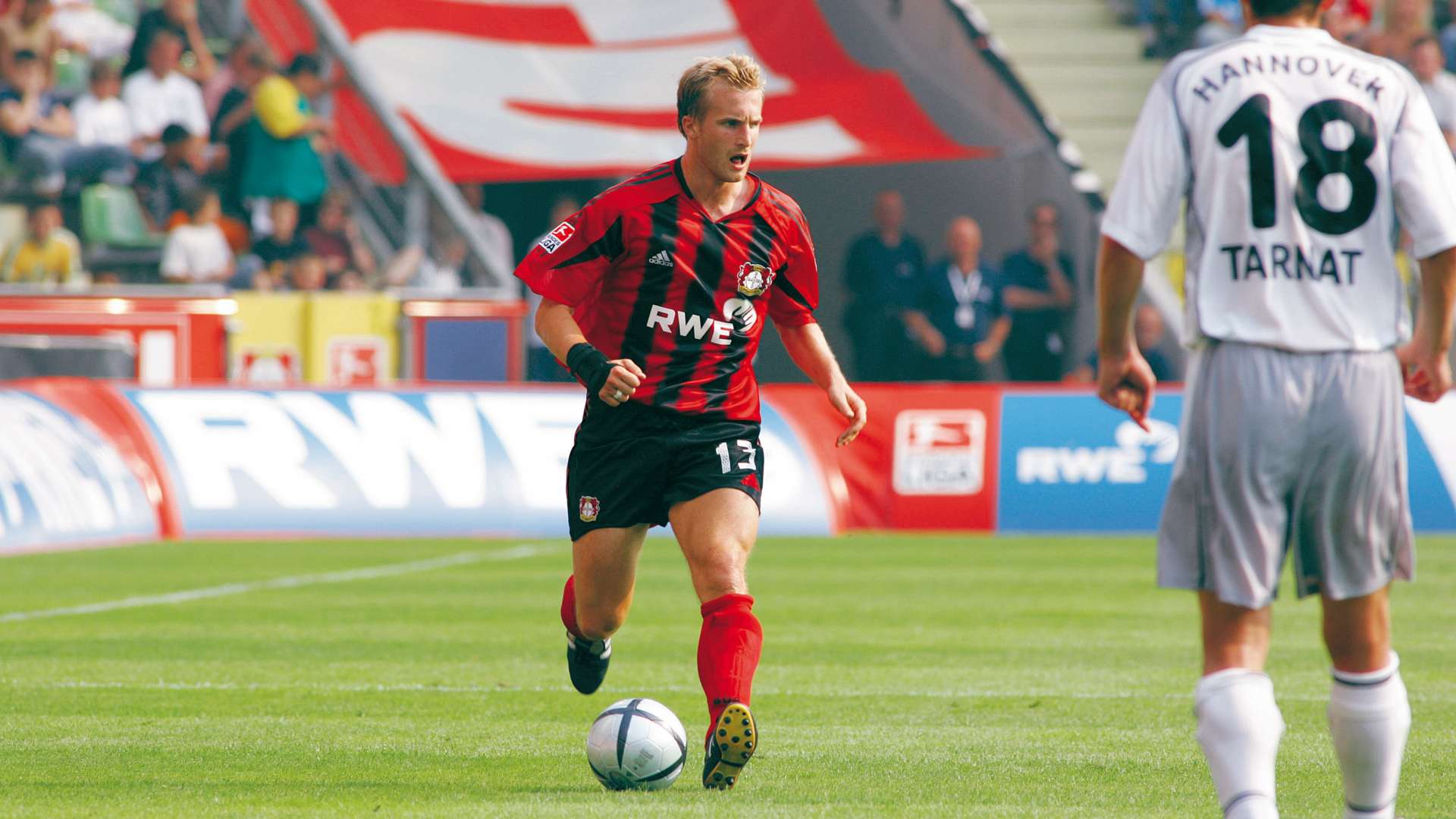

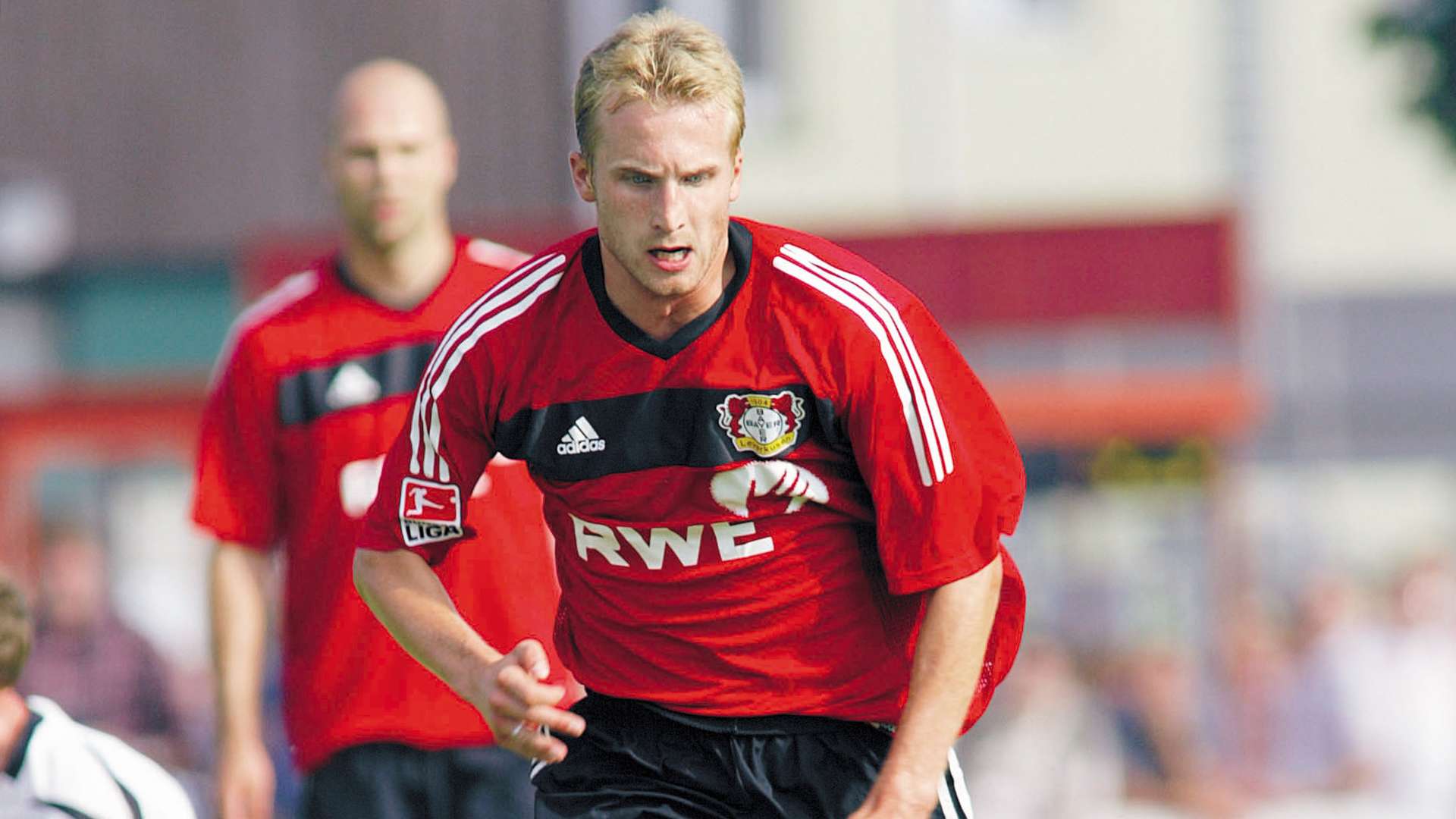
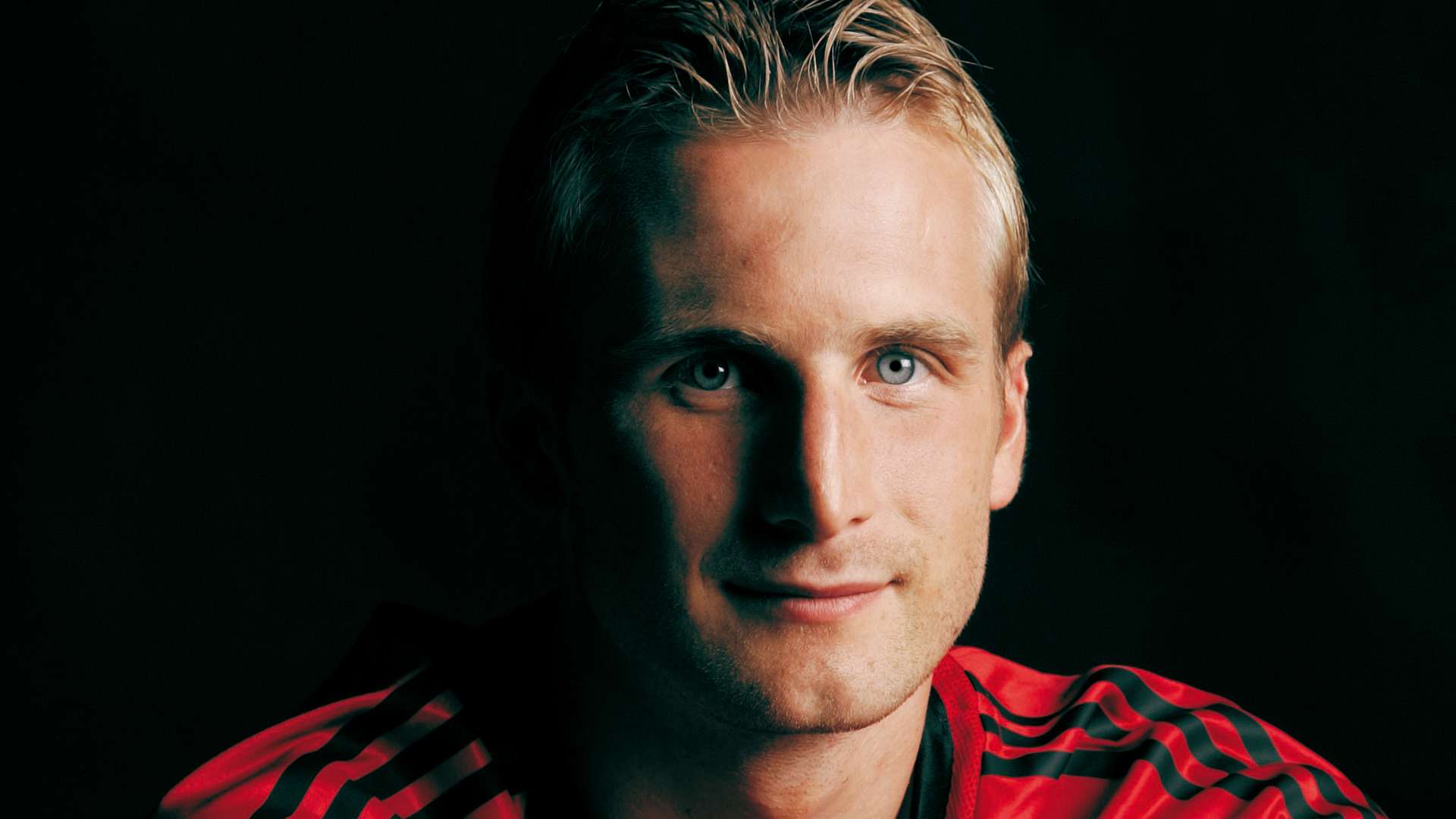
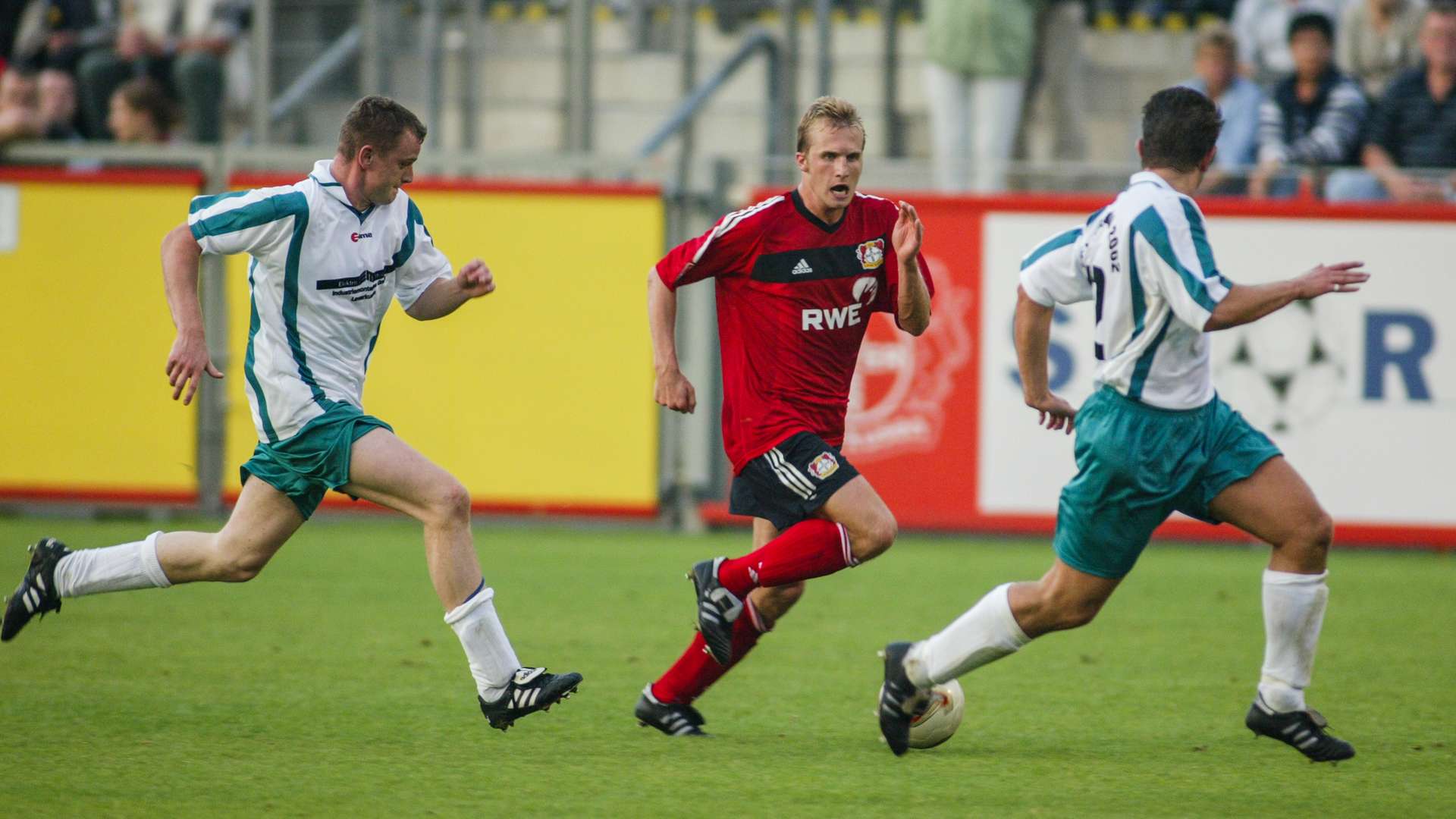
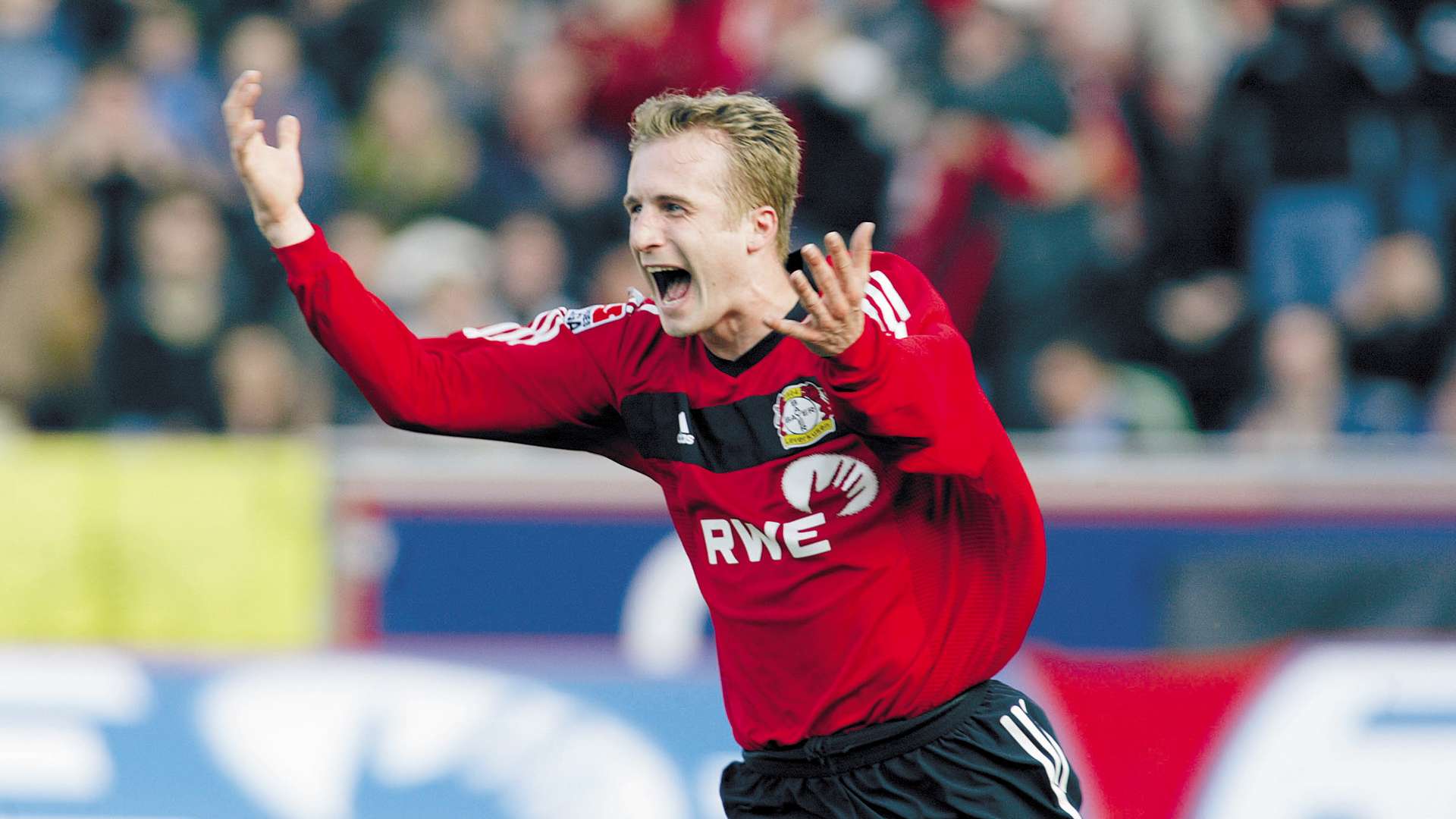
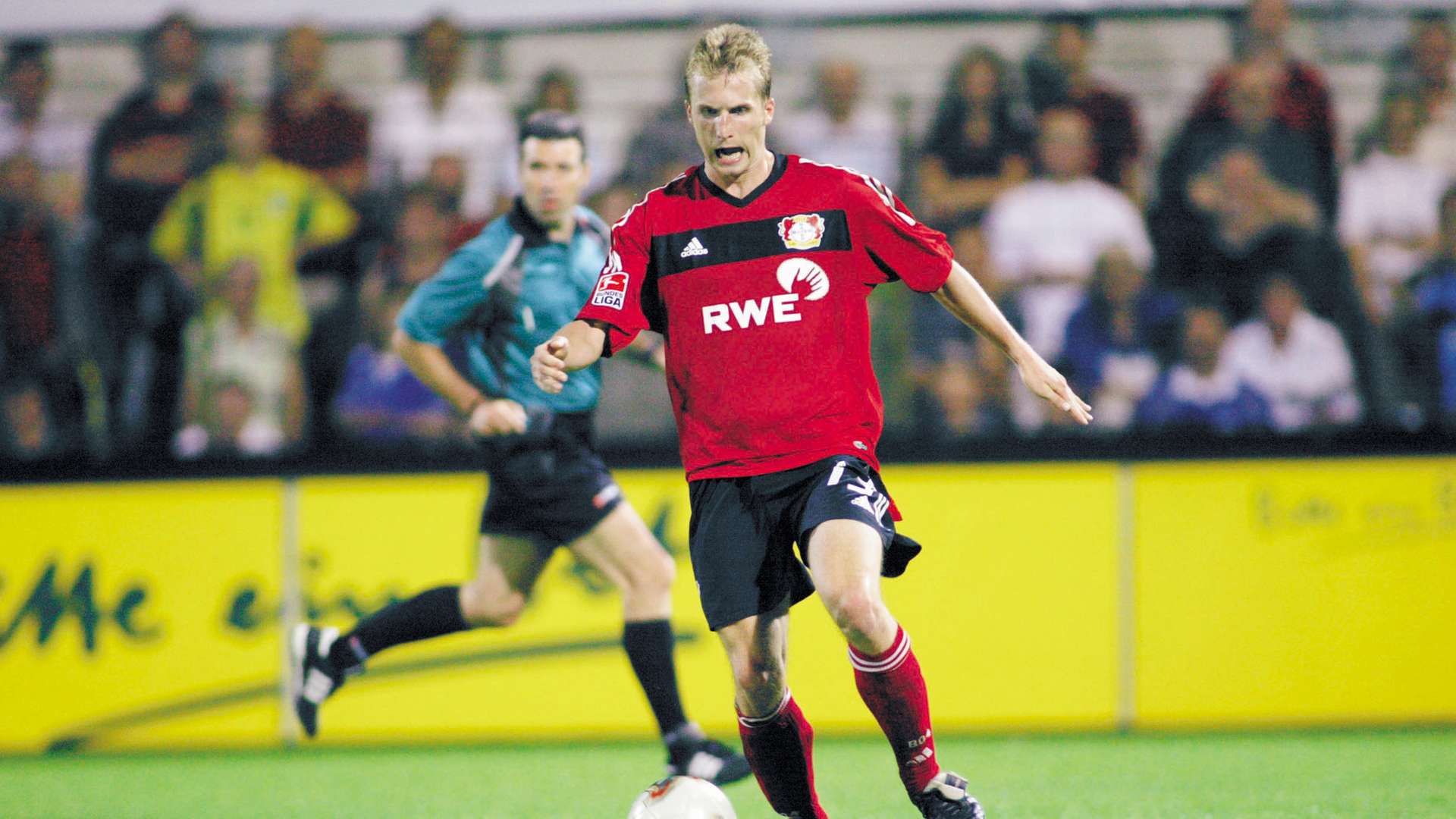
Related News
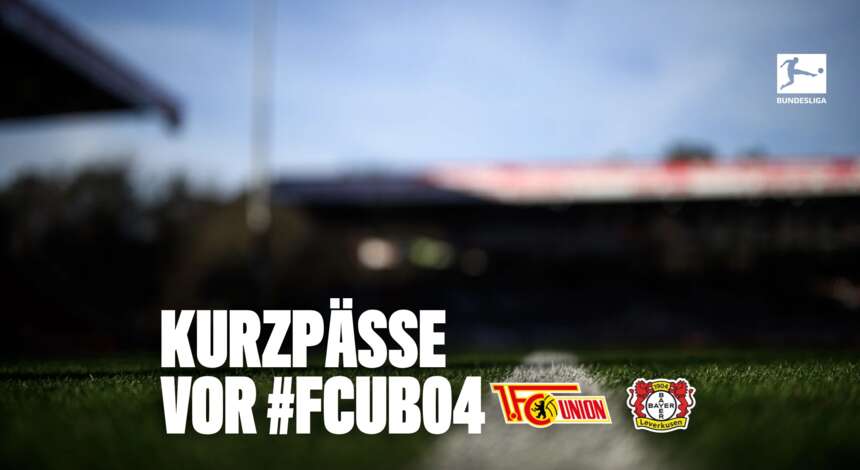
Matchday news #FCUB04: Continue unbeaten run at set-piece specialists Union Berlin
Sandwiched between their UEFA Champions League knockout play-off tie against Olympiacos, Bayer 04 return to Bundesliga action on Saturday with a trip to Union Berlin (kick-off: 15:30 CET). It’s a fixture of contrasting styles, with Leverkusen preferring to control the play while Union look to remain compact and counter. The Berliners are therefore suited to facing top teams, but they have only ever managed to win one of 16 meetings with the Werkself, who are looking for a fifth clean sheet of 2026 but will need to beware the home side’s threat from set pieces. Here’s all you need to know ahead of the game in our matchday news.
Show more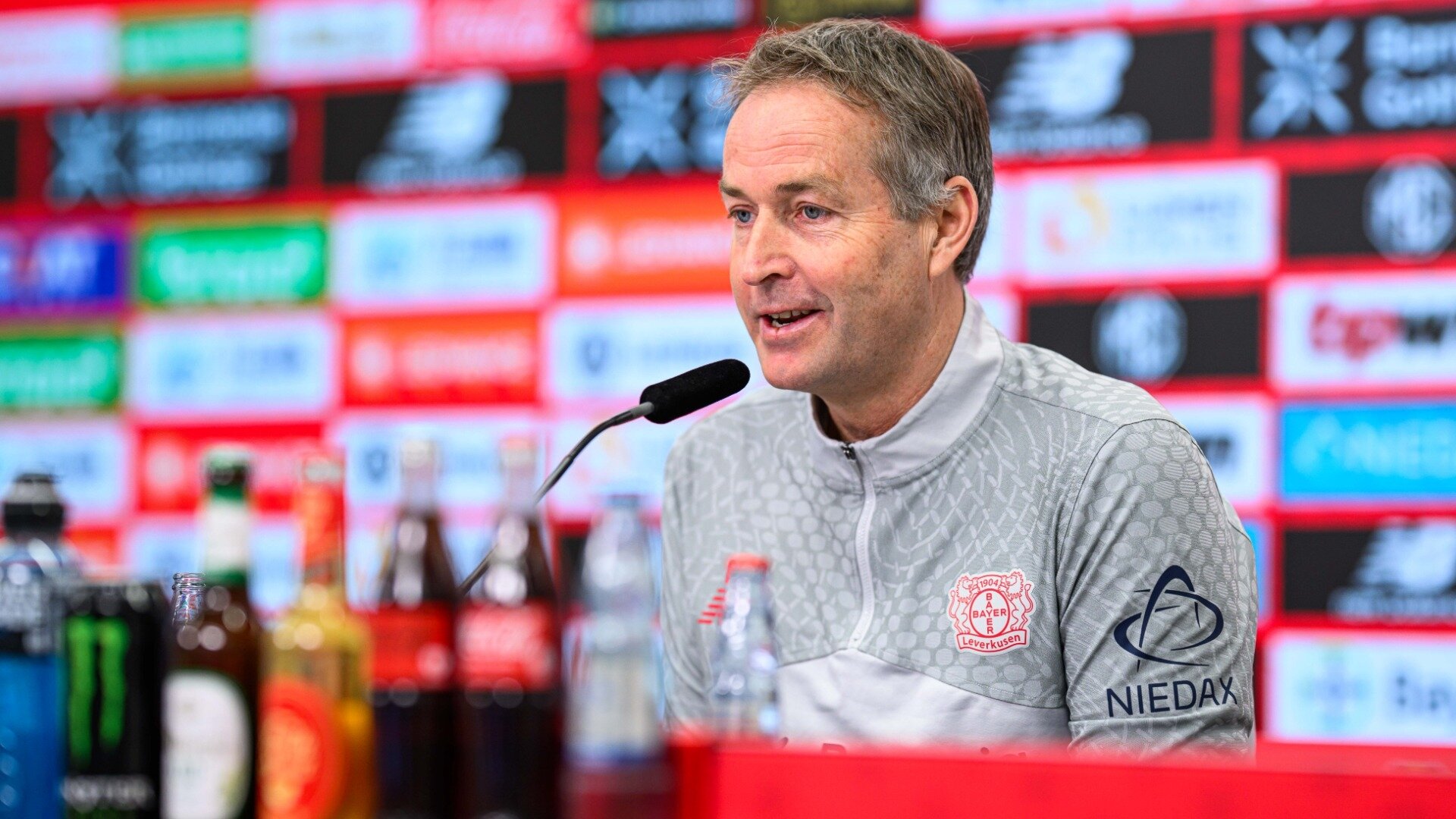
Hjulmand ahead of #FCUB04: ‘We are not naive and will be alert’
After six wins in seven games, the Werkself will be looking to continue their winning run in the capital at FC Union Berlin. Coach Kasper Hjulmand spoke ahead of the match on Saturday, 21 February (kick-off: 15:30 CET) about defenders, the short preparation time and the condition of the pitch at the Stadion An der Alten Försterei.
Show more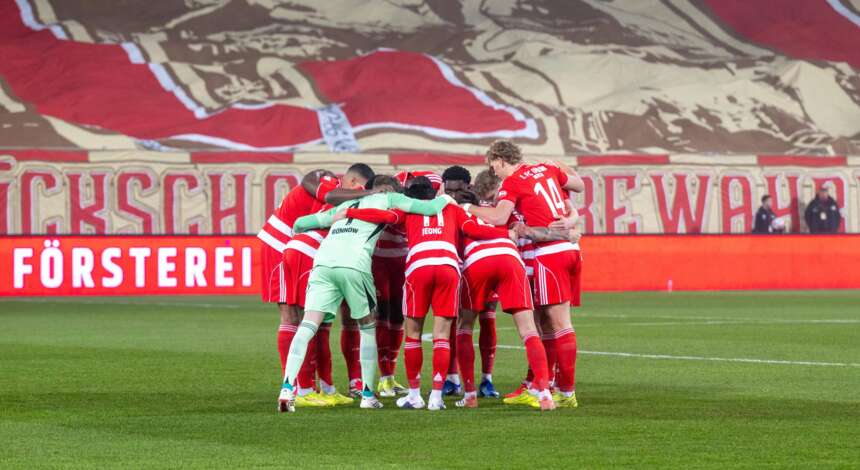
Our next opponents: Back on the road to success thanks to united approach
Union Berlin have performed particularly well against the top clubs in the Bundesliga this season with a draw at home to Bayern Munich and wins against VfB Stuttgart and RB Leipzig. This Saturday, 21 February (kick-off: 15:30 CET), the Irons now welcome the Werkself, currently sixth in the table, to the Stadion An der Alten Försterei. And the hosts are in desperate need of a win. The lowdown on our next opponents.
Show more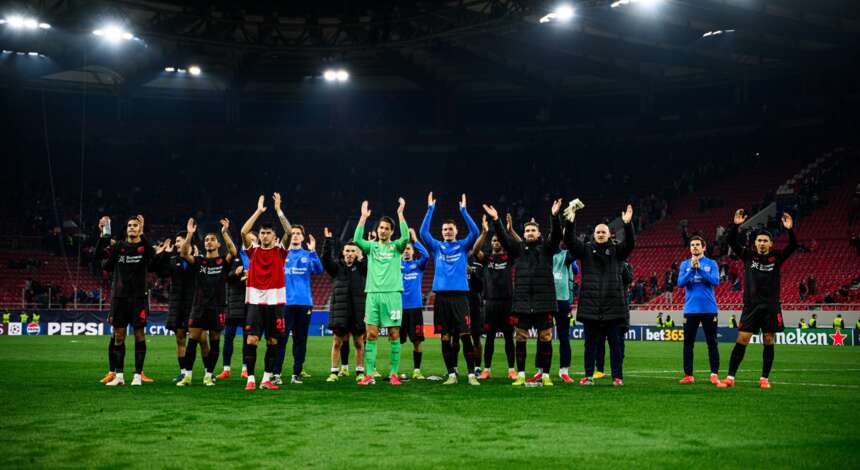
Werkself Review #OLYB04: 'The first step is done'
It took exactly 60 minutes for the Werkself to take the lead through a perfectly finished counter-attack by Patrik Schick in the first leg of the 2025/26 UEFA Champions League play-off at Olympiacos. Referring to the meeting in the league phase and the initially squandered opportunities, coach Kasper Hjulmand said afterwards: "I thought: 'Oh no, déjà-vu.'" But after the opening goal, it took just 144 seconds for the Czech to spark more wild celebrations among those in black and red in the Greek cauldron, when Schick nodded in Alejandro Grimaldo's corner. Much to the delight of the Bayer 04 fans, his teammates and his coach, who had warm words for the striker in the aftermath. The Werkself Review.
Show more